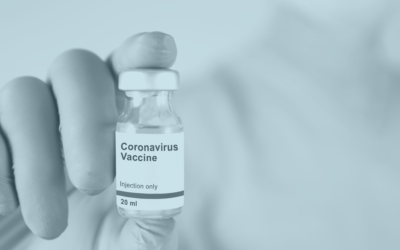
Board-certified pediatrician Dr. Shobana Pandian serves on the Board of Directors and as the Chapter Immunization Representative for the Indiana Chapter of the American Academy of Pediatrics. She answered some frequently asked questions parents have about vaccinating their children against COVID-19.
Why should I vaccinate my child against COVID-19?
Vaccinating everyone who is eligible ideally is what will continue to help end the spread of this disease.
The disease in children of the age group of 6 months to 5 years has taken a toll on kids and has increased hospitalization rates throughout our country. There has been a higher rate of sick kids during the omicron wave. More children have been hospitalized for COVID than flu this past season. The number of deaths to COVID has also been higher than the number of deaths due to flu in children.
Vaccinating your child will also help reduce the severity of disease and death for kids, just as it does in adults.
In our current world of pandemic exhaustion, getting your child vaccinated will also help with decreasing the number of work days and school days missed by families. This alone can help reduce the daily stress of many families.
Also, many kids have shown to only get a mild case of COVID- this means their immune system had a low viral load, which in turn means they will not have many antibodies to continue to protect them. Whereas, after getting the vaccine, even if your child has had COVID, they are protected better and longer.
How effective are the COVID-19 vaccines for children under 5?
Moderna and Pfizer both report efficacy. Moderna shows a higher percentage for 2-5 yrs of age after two doses, but Pfizer shows a higher percentage after three doses. Studies have shown that these vaccines report efficacy against COVID-19. They studied this compared to adults – and the clinical studies were comparable to the older age group.
What side effects might there be; will they be similar to the side effects adults experience?
Like most vaccines, common side effects include – pain at the injection site and fever. In the 6 to 23 months, irritability and drowsiness were common. At 2 to 5 years of age, pain at the injection site and fatigue were common.
There were no reported cases of myocarditis as there were in the adolescents and young adults.
It did show that side effects were more common after the second dose in Moderna and the third dose in Pfizer.
If I have the choice between Pfizer and Moderna, which should I choose?
Just choosing to vaccinate your child is better than not vaccinating at all.
But the studies have shown that Moderna is effective sooner, even after one dose, and in the end, it only requires two doses.
They have started studying their third dose booster already, which will be helpful and moving forward in vaccinating this age group.
Pfizer did show a better immune response after three doses but only after the third dose. Either one you choose, you are choosing to help protect your child.
What would you tell parents who may be nervous about vaccinating their children?
I would tell them that I understand their concern; I want what is best for all children like my own. And in light of what has happened these last couple of years with COVID with how many people have died and suffered, I feel strongly that vaccinating as many individuals that are eligible for this vaccine is the key to helping us continue to move forward in protecting us from the spread and severity of this disease. We rarely see polio, measle, mumps, rubella, and varicella, among many other vaccine-preventable diseases in our country. These are also life-threatening diseases that we administer vaccines for daily across the world. Thanks to vaccines, our children rarely suffer from such diseases. Let’s add COVID to the list as well.






